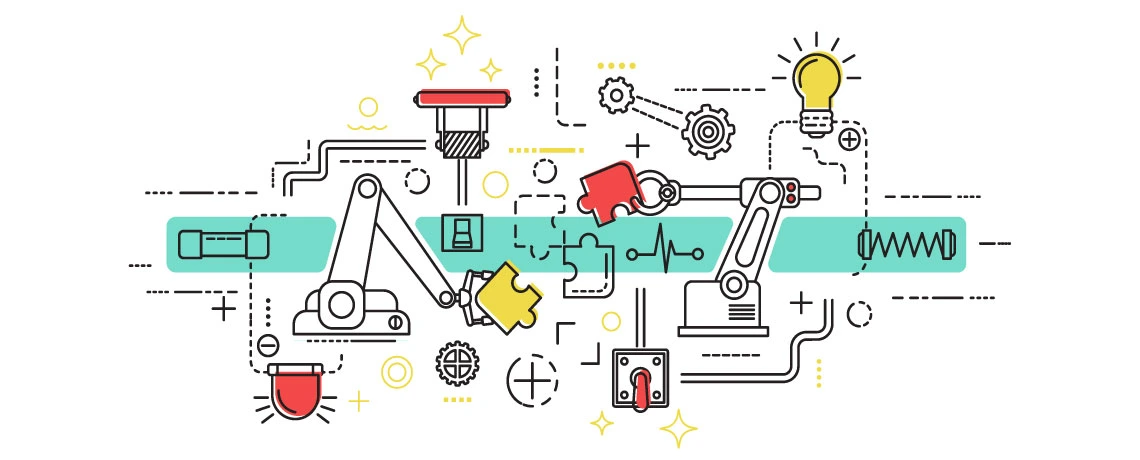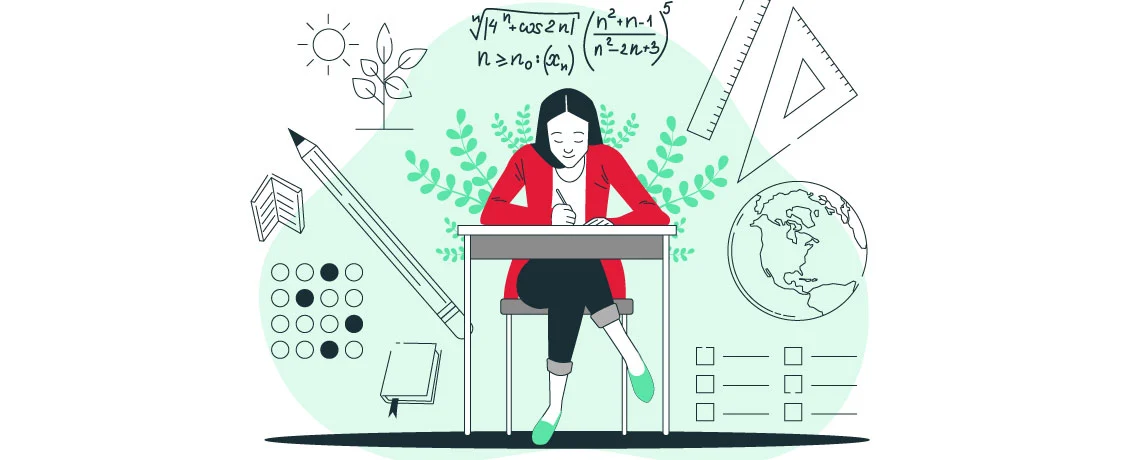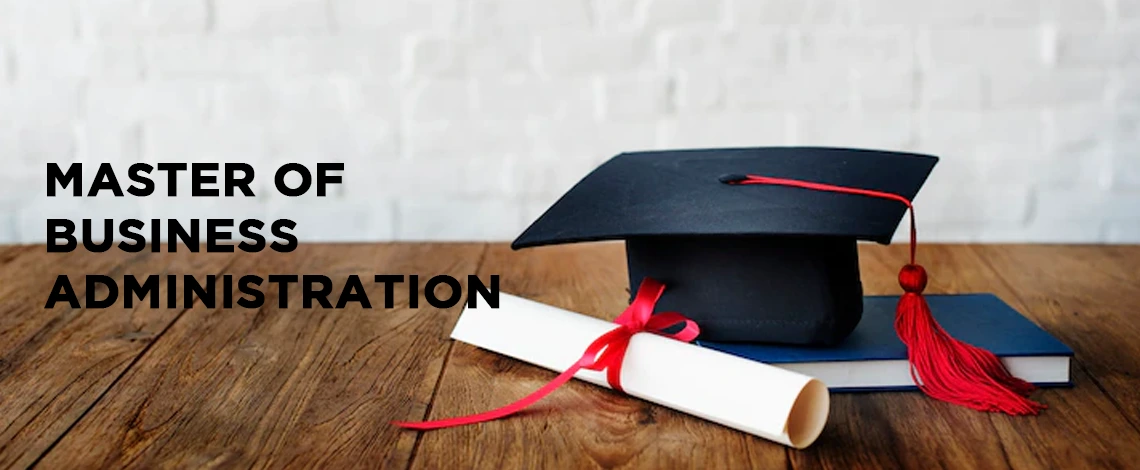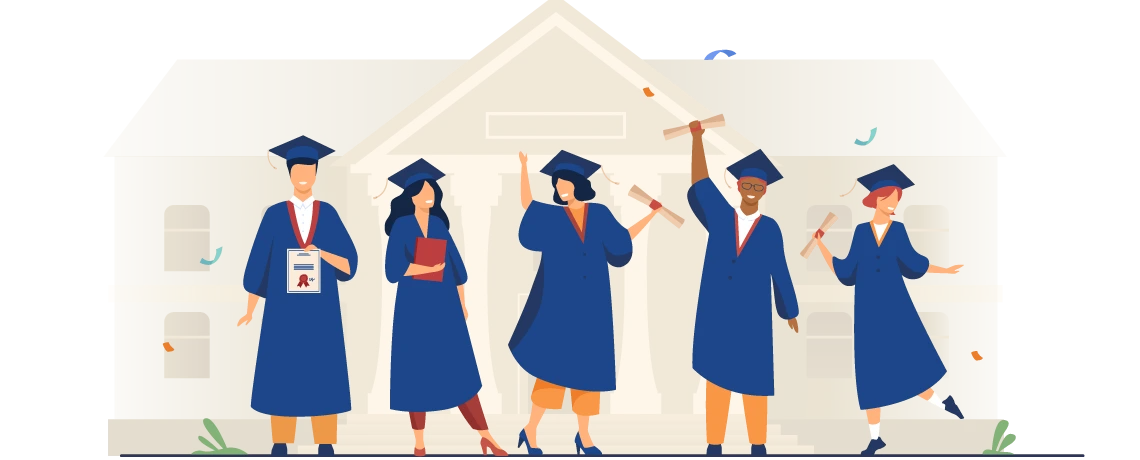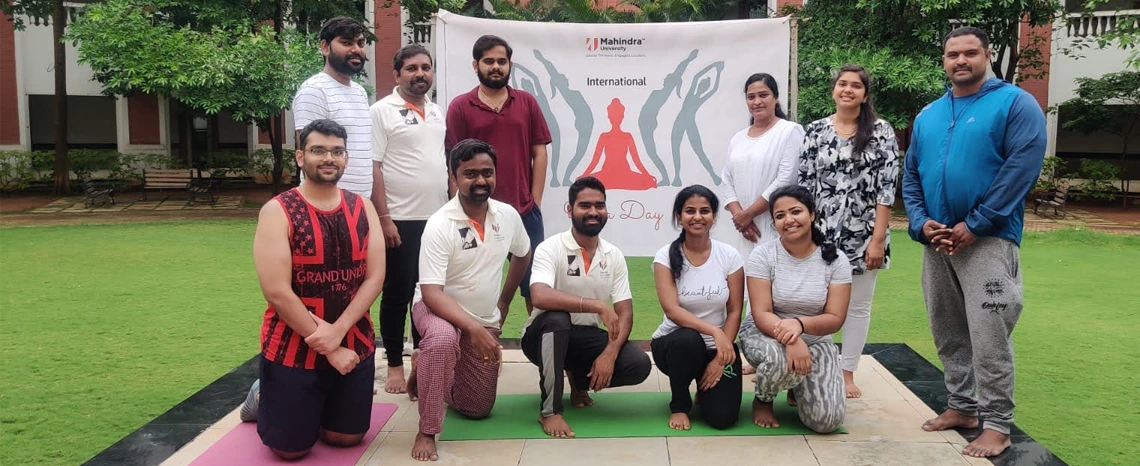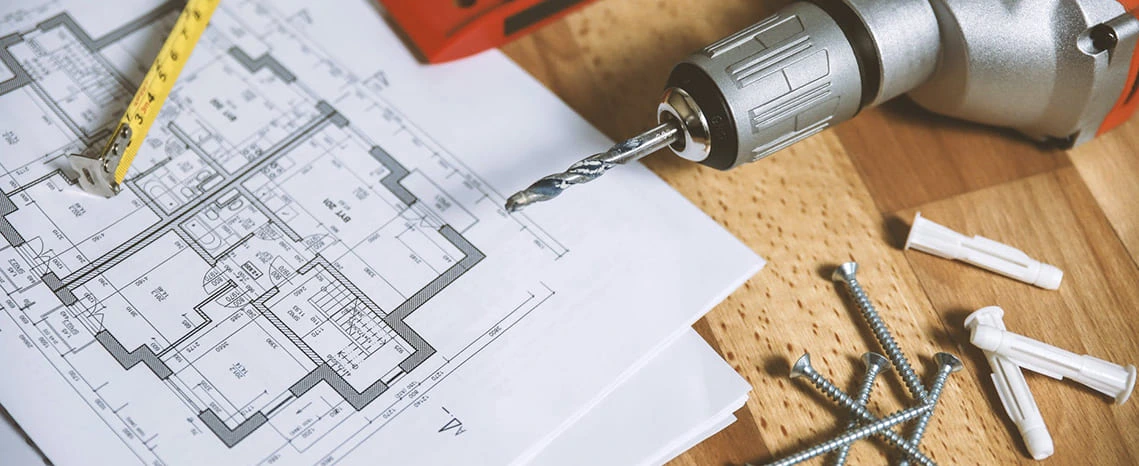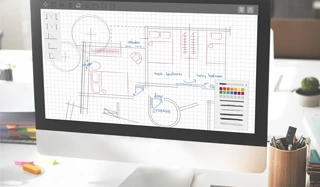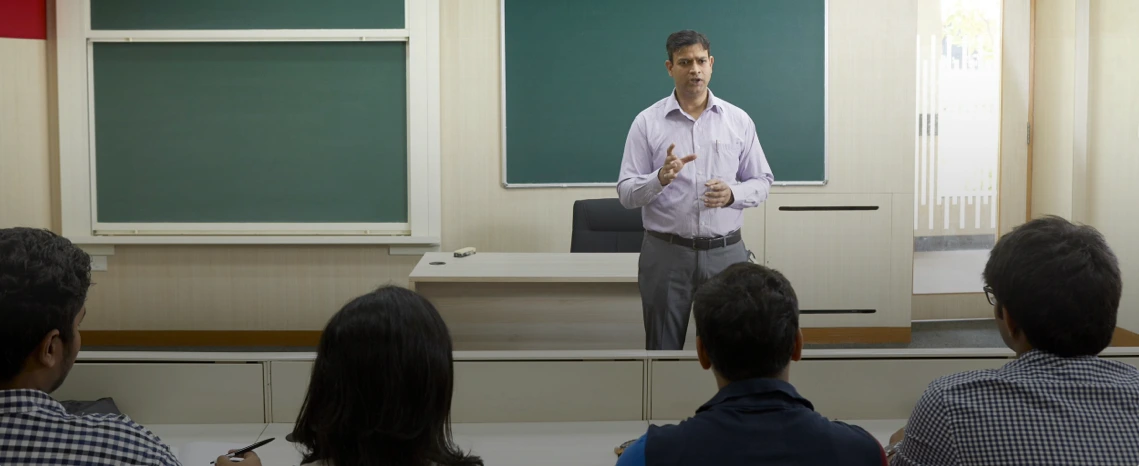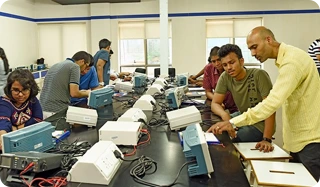How students can adapt to change from high School to University
Published On: December 20, 2021
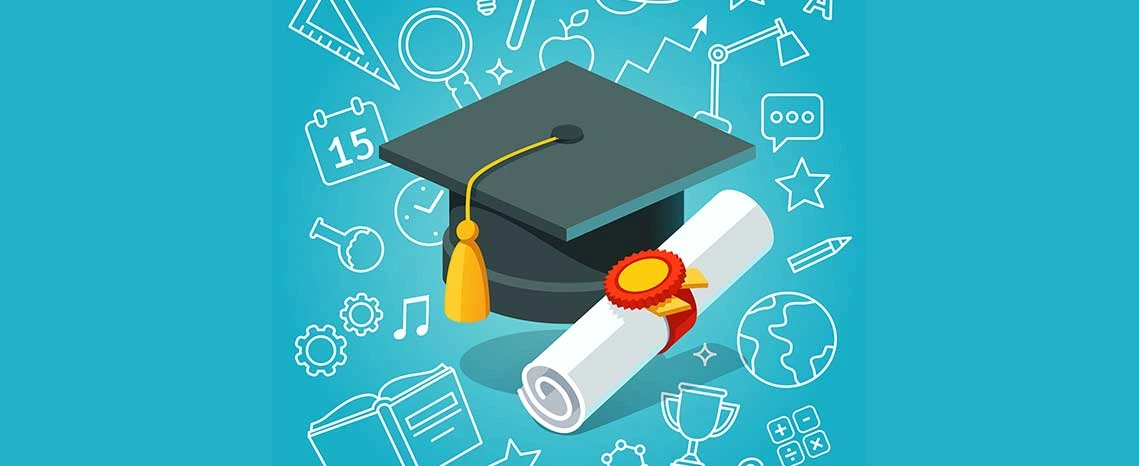
The transition from school to college is an exciting milestone in a student’s journey. However, the university environment is very different from a high school experience. It is like a bird flying out of a cage to the open sky. The below points can help a student to adapt better.
- Take time out to Explore: It is essential tounderstand the ambience of the college. Get familiarised with the list of subjects and their corresponding lecturers and professors. Make a schedule based on the timings of the classes. Make a mind- map of the location and map between lecture hall, library, facilities like Gym, cafeteria, sports complex etc. This will help you in understanding areas for your personal development.
- Research Well About the Course: Given the importance of a career,it is imperative that the student does a detailed read on the chosen subjects. Since the pedagogy in a college will be less personal than in a school, substantive efforts have to come from the students. Therefore, it is the student’s primary responsibility to manage his academic performance. There are several avenues for exploring each subject, like senior students, library, internet etc.
- Get Involved With Student Communities: The college environment provides new opportunities to make new friends from various streams. Given the immense diversity in the courses offered in a university, several student communities usually provide an avenue to enhance a student’s ability to create new bonds that go beyond the college. Since learning comes from multiple interactions, it is essential to be active in relevant student activities. This will facilitate exploring innate talent and developing talents like communication, leadership, persuasion skills, etc.
- Ask for Help: Since the new environment has ambiguities, the student has to take the initiative to seek help whenever required. Self-initiative is the key driver for self-development and improvement. Usually, the university conducts induction for students to get accustomed to their college life.
- Reading/Studying Strategy: Start by deciding what you want to study for a few minutes and setting a goal by what you want to accomplish during the following hour’s study session. Then take a ten to fifteen-minute break and review your study strategy. Next, survey the chapter by reading the beginning to end. Note down for each its heading and sub-heading and read it aloud. This is one method of learning. Each may have their way of learning and may follow that.
- Make a Study Calendar: It is vital to get into a rhythm of well-planned activities. It is recommended to chart a weekly planner, affix it in a prominent place and make a regular “todos” marked out on the planner. If a student lives in a hostel, it is essential to chart out a routine and adhere to a habit. It is crucial to think holistically to develop oneself in extracurricular activities.The effects of stress affect us physically, mentally and emotionally. There is at times so much going on in college that it affects you deeply. Step back and take out time for yourself, and practice self-care. Identify the activities that make you feel the best, put time aside to rest and surround yourself with great people.
- Identify Mentors:Mentors serve as a robust support system and help the students with advice and suggestions. Try to identify professors, peers, counsellors, and academic advisors and talk to them about the areas you require help and are passionate about developing a career. Mentors can motivate you, provide you with valuable advice, encourage you and guide you to the right path of your career.
Keep in mind the above points to have a smooth transition from School to College and not worry much about the various issues that might prop up as all are part and parcel of life.
Read Your Next Blog

B.A. LL.B. Course Details: Duration, Fees, Subjects, Syllabus, and Admission 2025
Published On: March 27, 2025

Unveiling the World of Hospitality Management: Crafting Memorable Experiences
Published On: February 24, 2025

What is Journalism and Mass Communication: Crafting Stories That Shape the World
Published On: February 21, 2025

How to Become a Lawyer: A Step-by-Step Guide to a Rewarding Legal Career
Published On: February 21, 2025

Be a Master of the Smallest Particle Alive and Know What is Nanotechnology
Published On: January 17, 2025

Engineering Aspirations: Your Guide to B.Tech Courses and Admissions 2025
Published On: January 15, 2025

Mastering the Law: Your Ultimate Guide to the 3-Year LLB Course Syllabus
Published On: December 12, 2024

Take a Flight to Success by Knowing the Answer of What is Aerospace Engineering
Published On: November 7, 2024

LL.B. Course Details: Everything You Need to Know to Kickstart Your Legal Career
Published On: October 23, 2024

From Classrooms to Coding: Courses After 12th Computer Science for Aspiring Tech Wizard
Published On: October 17, 2024
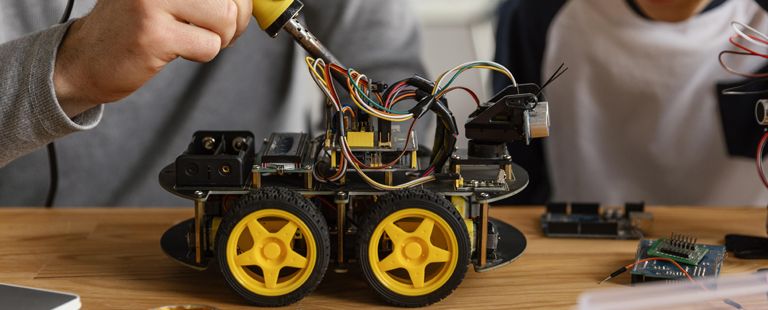
What is Mechanical Engineering: The Science Behind Machines and Mechanics
Published On: October 1, 2024
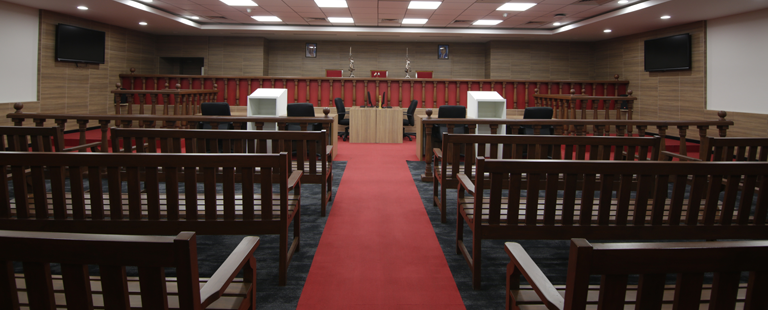
From Courtrooms to Corporate Offices: Government Jobs You Can Land with a BBA LL.B.
Published On: September 27, 2024

Essential BBA Course Details: All You Need to Know About Business Studies
Published On: September 25, 2024

Design the Future with a B.Des – Where Creativity and Strategy Collide
Published On: September 18, 2024

Explore the Future: Top B.Tech. Courses to Kickstart Your Engineering Career
Published On: September 16, 2024

From Guest Services to Executive Suites: Navigating Your Journey with B.Sc. in Hospitality Management Course
Published On: September 13, 2024

From Resorts to Restaurants: Exploring Jobs After Hospitality Management
Published On: September 11, 2024

From Data to Discovery: How Biomedical Data Science is Accelerating Breakthroughs in Medicine
Published On: September 9, 2024

Step into the World of Finance: Your Guide to BBA Finance Admissions and Opportunities
Published On: September 5, 2024

Climbing the Academic Ladder: Your Ultimate Guide to Doing a Ph.D. in India
Published On: September 2, 2024

Power Up Your Potential: Best Engineering Courses After 12th For Tech Enthusiasts
Published On: August 5, 2024

System Engineering: Building a Resilient Career in a Rapidly Changing World
Published On: July 31, 2024

Making the Right Choice: Exploring the Best Career Options After 12th Grade
Published On: July 30, 2024

More Than Just Litigator: 10 Rewarding Career Options After B.A LL.B. (Hons.)
Published On: July 29, 2024

Develop Media Literacy and Form a Career in Journalism and Mass Communication
Published On: May 7, 2024

Is Mechanical Engineering a Good Career? Exploring Career Paths & Benefits
Published On: April 29, 2024

Innovate Infrastructure Development – Different Types of Civil Engineering
Published On: April 26, 2024

Give a Boost to Your Technologically-advanced Career with M.Tech. Courses
Published On: April 26, 2024

Different Types of MBA Courses – Gain Valuable Skills for the Business World
Published On: April 24, 2024

Elevate Your Leadership Expertise with a Doctorate in Business Administration
Published On: March 22, 2024

Lay a Solid Foundation for Your Career with the Exploration of Types of Mechanical Engineering
Published On: March 21, 2024

Embrace the Science of Healing and Innovation with Biotechnology Engineering Scope
Published On: March 21, 2024

Discern Your Dream Career in Media with the Scope of Journalism and Mass Communication
Published On: March 20, 2024

Exploring Law Courses After 12th: Your Gateway to a Diverse Legal Landscape
Published On: March 20, 2024

The Power of Connectivity: Unveiling the Scope of Electronics and Communication Engineering
Published On: March 19, 2024

Exploring the Expansive Horizons: The Scope of Journalism and Mass Communication
Published On: March 15, 2024

Achieving Educational Excellence: A Deep Dive into Master’s Degree in Education
Published On: March 15, 2024

Beyond the Degree: Unveiling the Multifaceted Benefits of Doing an MBA
Published On: February 29, 2024

Bridging Gaps, Building Futures: Exploring the Endless Scopes of Civil Engineering
Published On: February 29, 2024

Choosing Your Legal Path: BA LLB vs BBA LLB – Which Course is Better?
Published On: February 27, 2024

Kickstart Your Journey With Mass Communication Courses After 12th Grade
Published On: February 27, 2024
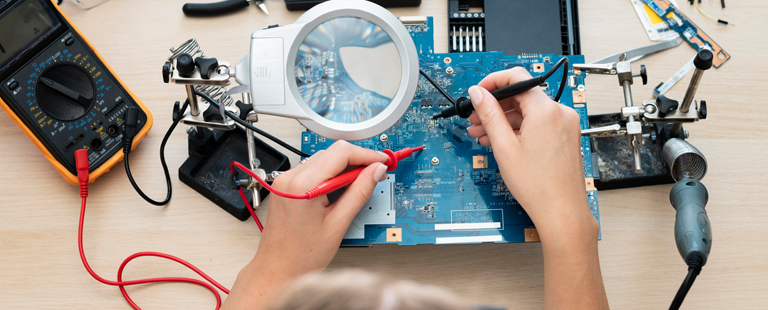
Decoding the Difference Between Electrical and Electronics Engineering
Published On: February 27, 2024

Next Steps: Exploring Top Computer Science Engineering Courses After 12th
Published On: February 26, 2024

Journalism Courses After 12th – Understanding the Significance of a BA in Journalism and Mass Communication
Published On: February 12, 2024

Forge Your Path to Excellence with Ph.D. Admission – Dive Into Details
Published On: February 9, 2024

Why MBA After Engineering: Transcending from Technical Wizardry to Leadership Mastery
Published On: January 2, 2024

Know the Scope of PhD in Economics and uncover hidden patterns of economic brilliance.
Published On: July 7, 2023

A Closer Look Into the BBA Computational Business Analytics Admission Process
Published On: July 6, 2023

From Circuits to Codes – Discover a Wide Range of Career Options After B.Tech. ECE
Published On: July 5, 2023

The Nanotech Revolution: The Astonishing Future Impact of B.Tech. Nanotechnology
Published On: July 4, 2023

From Roads to Skies: The Limitless Horizon of the Scope of M.Tech. in Transportation Engineering
Published On: July 4, 2023

Discover a New Era of Business Education with the Immense Scope of BBA in Computational Business Analytics
Published On: July 3, 2023

From Application to Acceptance – Navigate the Ph.D. Information Science and Technology Admission Process
Published On: June 28, 2023

Pave Your Path to Financial Brilliance with an Enormous Scope of BA Economics and Finance
Published On: June 28, 2023

Join the Digital Revolution with Diverse Career Options After B.Tech. ECE
Published On: June 27, 2023

Discover Your Eligibility for B.Tech. Biotechnology and Kickstart Your Career
Published On: June 27, 2023

Transform Your Career Trajectory with the Lucrative Scope of an Executive MBA
Published On: June 26, 2023

M.Tech. in Power Electronics and Renewable Energy Systems – Pursue New-age Careers
Published On: May 25, 2023

Ph.D. in Economics – Discover Innovative Solutions to Economic Challenges
Published On: March 28, 2023

M. Tech. in Autonomous Electric Vehicles – Dive Into the Future of Autonomous Vehicles (AV)
Published On: March 28, 2023

Construct a Better World with B.Tech. in Civil Engineering from Mahindra University
Published On: March 28, 2023

Acquire the Futuristic Mathematical & Computing Technologies with a Computational Mathematics Course
Published On: March 3, 2023

PhD in Business Administration – Dig Deeper into the Science of Management
Published On: March 3, 2023

B.Tech in Mechanical Engineering – Become a Master of Mechanics at Mahindra University
Published On: March 3, 2023

Shape Your Engineering Career with Mahindra University – One of the Best Engineering Colleges in Hyderabad
Published On: March 3, 2023

Transform Lives & Shape the World with Mahindra University – One of the Top Civil Engineering Colleges in Hyderabad
Published On: February 1, 2023

B Tech in Artificial Intelligence – The Next Big Thing in Technological Revolution
Published On: February 1, 2023

Lead the Tech Revolution with BTech CSE at Mahindra University – One of the Best Computer Science Engineering Colleges in Hyderabad
Published On: February 1, 2023

Kickstart Your Legal Career with Mahindra University – One of the Best Colleges for BBA LLB
Published On: February 1, 2023

Top BA LLB Colleges in Hyderabad – Training Exceptional Lawyers and Leaders
Published On: December 8, 2022
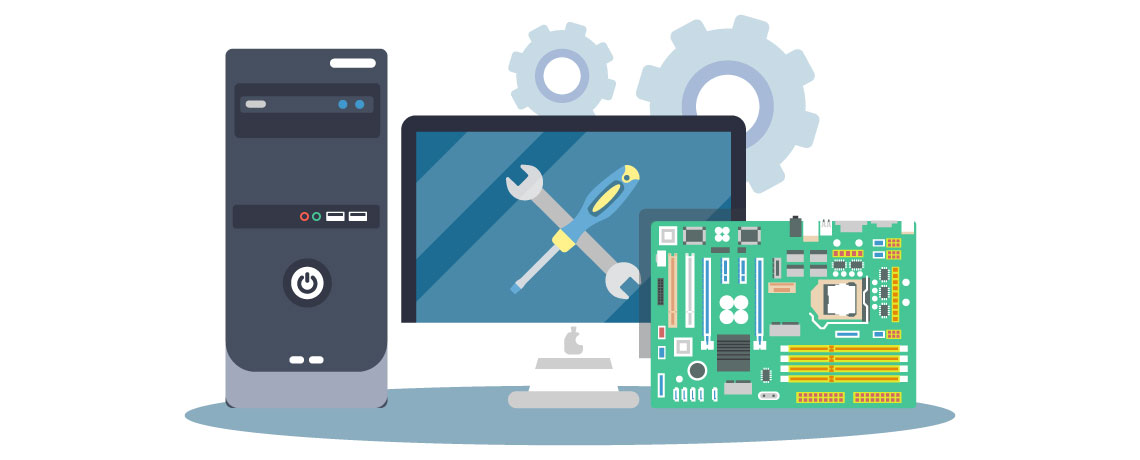
BTech Electronics and Computer Engineering Course – Engage in Independent and Life-long Learning
Published On: December 7, 2022

Best Colleges for Humanities and Social Sciences – Get World-class Training and Hands-on Learning Experience
Published On: December 7, 2022
![Arm_Yourself_with_Deep_Business_Knowledge_&_Insights_with_PhD_Program_in_Business_Administration_at_Mahindra_University[1] Arm_Yourself_with_Deep_Business_Knowledge_&_Insights_with_PhD_Program_in_Business_Administration_at_Mahindra_University[1]](https://www.mahindrauniversity.edu.in/wp-content/uploads/2023/04/Arm_Yourself_with_Deep_Business_Knowledge__Insights_with_PhD_Program_in_Business_Administration_at_Mahindra_University1.jpg)
Arm Yourself with Deep Business Knowledge & Insights with PhD Program in Business Administration at Mahindra University
Published On: November 22, 2022
![Emerge_as_a_Forward_thinking_Mechanical_Engineer_with_B_1140x460[1] Emerge_as_a_Forward_thinking_Mechanical_Engineer_with_B_1140x460[1]](https://www.mahindrauniversity.edu.in/wp-content/uploads/2023/04/Emerge_as_a_Forward_thinking_Mechanical_Engineer_with_B_1140x4601.jpg)
Emerge as a Forward-thinking Mechanical Engineer with B.Tech in Mechanical Engineering at Mahindra University
Published On: November 22, 2022
![B.Tech_in_Computer_Science_Engineering_(BTech_CSE)_Your_Gateway_to_Become_a_Computer_Genius_1140x460[1] B.Tech_in_Computer_Science_Engineering_(BTech_CSE)_Your_Gateway_to_Become_a_Computer_Genius_1140x460[1]](https://www.mahindrauniversity.edu.in/wp-content/uploads/2023/04/B.Tech_in_Computer_Science_Engineering_BTech_CSE_Your_Gateway_to_Become_a_Computer_Genius_1140x4601.jpg)
B.Tech in Computer Science Engineering (BTech CSE) – Your Gateway to Become a Computer Genius
Published On: November 22, 2022
![Digital_Marketing_is_Booming_Globally_1140x460[1] Digital_Marketing_is_Booming_Globally_1140x460[1]](https://www.mahindrauniversity.edu.in/wp-content/uploads/2023/04/Digital_Marketing_is_Booming_Globally_1140x4601.jpg)
The Scope of Digital Marketing is Booming Globally. Transform the Business Landscape with a BBA in Digital Marketing
Published On: November 22, 2022
![MU_Electrical20Computer20Engineering_1140x460[1] MU_Electrical20Computer20Engineering_1140x460[1]](https://www.mahindrauniversity.edu.in/wp-content/uploads/2023/04/MU_Electrical20Computer20Engineering_1140x4601.jpg)
India Calls for Multitalented Engineers. Be the One with the Electrical and Computer Science Engineering Course
Published On: October 31, 2022
![BA_LLB_Hons_Course_at_Mahindra_University[1] BA_LLB_Hons_Course_at_Mahindra_University[1]](https://www.mahindrauniversity.edu.in/wp-content/uploads/2023/04/BA_LLB_Hons_Course_at_Mahindra_University1.webp)
Do You Want to Pursue Law as a Career? Take BA LLB Hons Course at Mahindra University
Published On: October 28, 2022
![Management_&_Business_Administration_is_Tremendously_High[1] Management_&_Business_Administration_is_Tremendously_High[1]](https://www.mahindrauniversity.edu.in/wp-content/uploads/2023/04/Management__Business_Administration_is_Tremendously_High1.jpg)
The Scope of PhD in Management & Business Administration is Tremendously High. Understanding the Significance.
Published On: October 28, 2022

Civil Engineers Are New-age Superheroes. How is Mahindra University Moulding Futuristic Civil Engineers?
Published On: October 28, 2022

Be Legally Empowered by Pursuing Law | Top BA LLB (Hons) Colleges in Hyderabad
Published On: August 19, 2022

Pursue BA in Economics & Finance and contribute to India’s economic development
Published On: July 27, 2022

A Comprehensive Outlook On One Of The Highly Sought After Courses In Law: BBA LLB (Hons)
Published On: July 19, 2022

Why Revolutionary B.Tech Computer Science and Engineering Course Is The Choice Of Every Aspiring Student?
Published On: July 15, 2022

B.Tech in Computer Science & Engineering: A course for those who want to learn to lead forward
Published On: July 5, 2022

Manifesting excellent managerial skills and a fatter salary tag? It’s just a degree away.
Published On: June 27, 2022

Why BBA LLB is the right course for Law and Business enthusiasts in 2022
Published On: April 11, 2022

Here’s why B.Tech in Mechanical Engineering is one of the emerging courses for today’s talented youngsters
Published On: April 11, 2022

How Has Digital Marketing Turned Out To Be A Boon For Creative Individuals ?
Published On: April 11, 2022
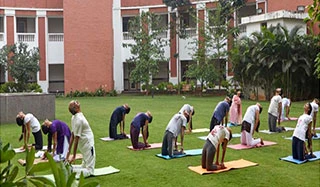
Reasons Why You Should be active in Sports, Extracurriculars at The University
Published On: February 16, 2022

Skillsets That Give You an Edge Over Others in Securing Your Dream Job
Published On: February 16, 2022
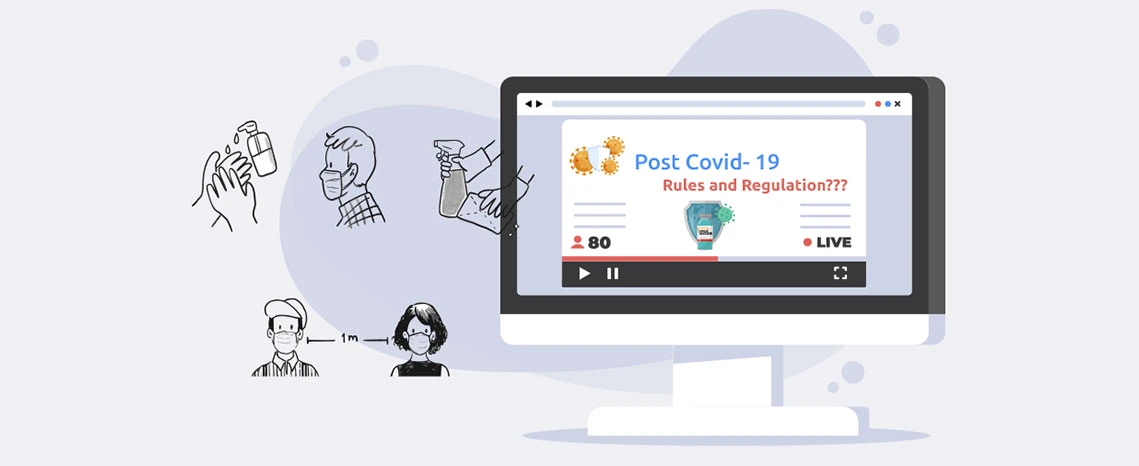
Getting Back to Campus in The Post-COVID 19 World, 5 Hacks You Should Remember
Published On: February 16, 2022

How has Computer Science Engineering (CSE) evolved to create a demand among engineering aspirants
Published On: January 17, 2022

How B.Tech In Mechatronics Engineering Contributes In Making Human Life Easier?
Published On: January 16, 2022

Most Promising Engineering Disciplines with the Best Opportunities in 2025
Published On: November 26, 2021

Modi government has failed to utilise technology to ensure inclusive economy
Published On: August 13, 2021








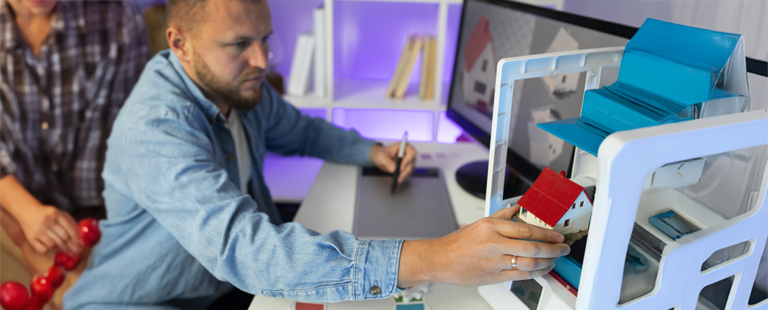






















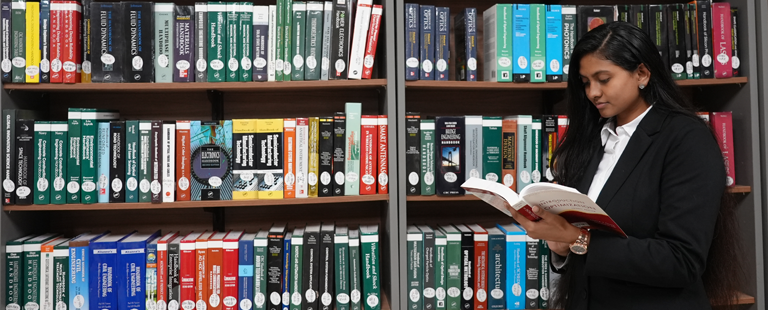




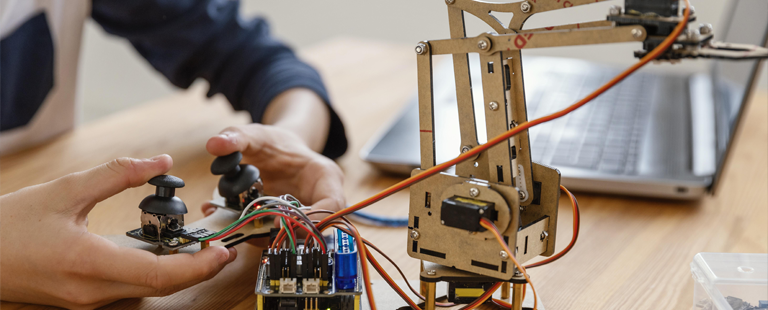







































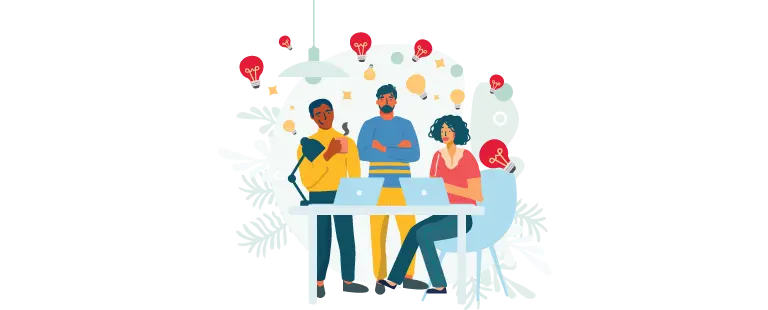






























![whyistraining&placementcellimportant[1] whyistraining&placementcellimportant[1]](https://www.mahindrauniversity.edu.in/wp-content/uploads/2023/04/why20is20training2020placement20cell20important1.png)
![TheDifferencesbetweenRights&Duties[1] TheDifferencesbetweenRights&Duties[1]](https://www.mahindrauniversity.edu.in/wp-content/uploads/2023/04/The20Differences20between20Rights2020Duties1.png)
![sleep_deprivation[1] sleep_deprivation[1]](https://www.mahindrauniversity.edu.in/wp-content/uploads/2023/04/sleep_deprivation1.jpg)
![SelfLoveBlogImage2[1] SelfLoveBlogImage2[1]](https://www.mahindrauniversity.edu.in/wp-content/uploads/2023/04/Self20Love20Blog20Image2021.png)













